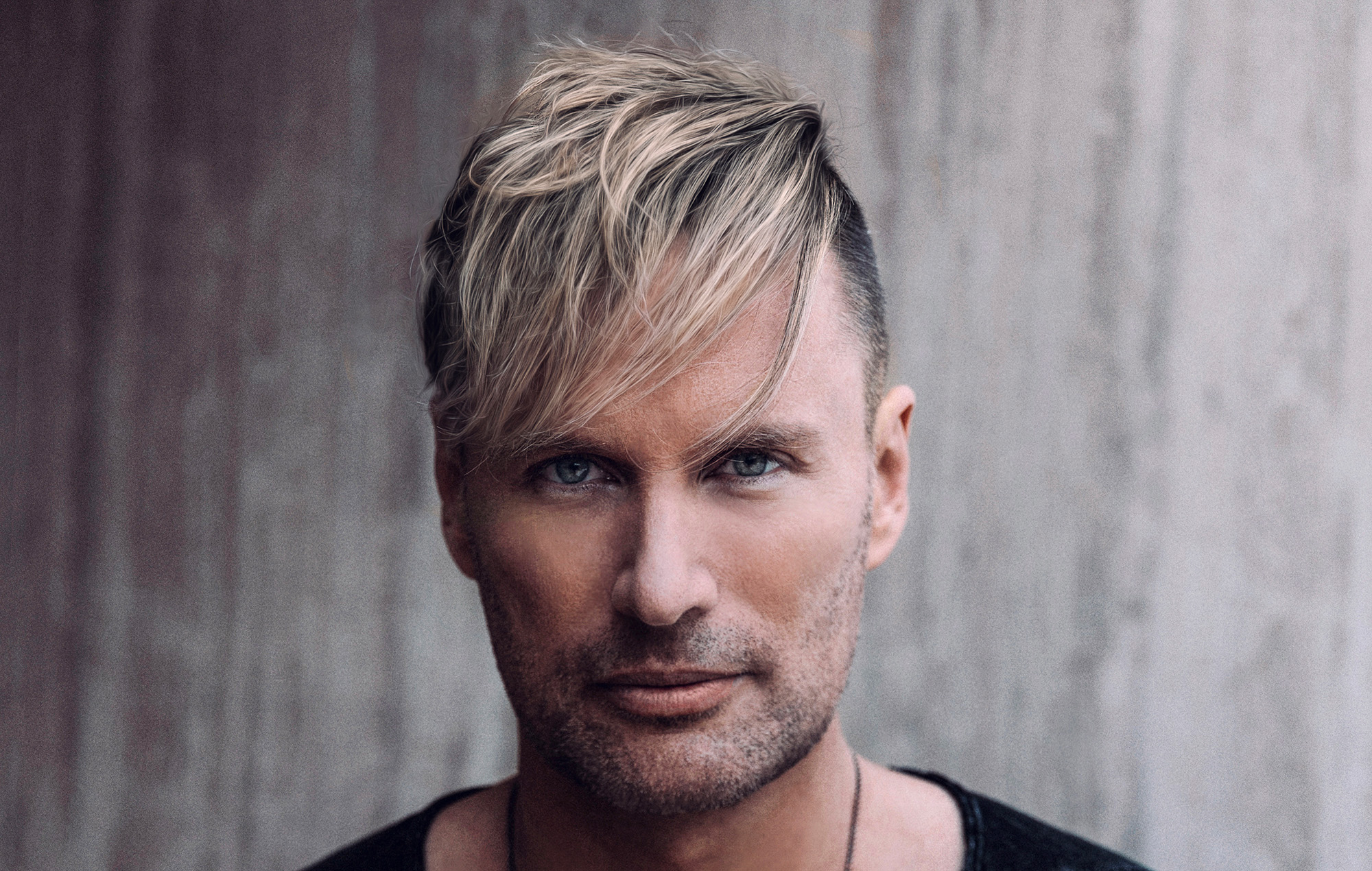
How do you condense nearly 40 years of music history from the Super Mario Bros. games into the score for a 90-minute movie adaptation? A series with music so iconic that its main theme was recently recognised by the US Library of Congress’ National Recording Registry as a defining sound of the nation’s history and culture. And how do you decide which melodies from the 200-plus Mario games and spin-offs you should reference to ensure the movie connects with as many Nintendo fans as possible, regardless of whether their entry into the Mario series was Super Mario Land or Mario Kart 64?
- READ MORE: ‘Final Fantasy I-VI Pixel Remasters’ review: diamonds made rough
It helps if the person you put in charge of scoring the movie lives and breathes video games. In this case, Brian Tyler, best known for scoring Iron Man 3, The Expendables, and the Fast & Furious movies as well as video games such as Army of Two and Far Cry 3. Tyler’s been gaming ever since he wrapped his hands around the joystick of Nintendo’s 1981 Donkey Kong arcade machine, so it was a dream come true to work alongside Mario’s creator, Shigeru Miyamoto, and composer, Koji Kondo, on the soundtrack for The Super Mario Bros. Movie.
“I’ve been a fan through the whole history of Mario,” Tyler tells NME over a video call. “And like so many fans, I’ve dedicated so much time and energy into living in these worlds.”
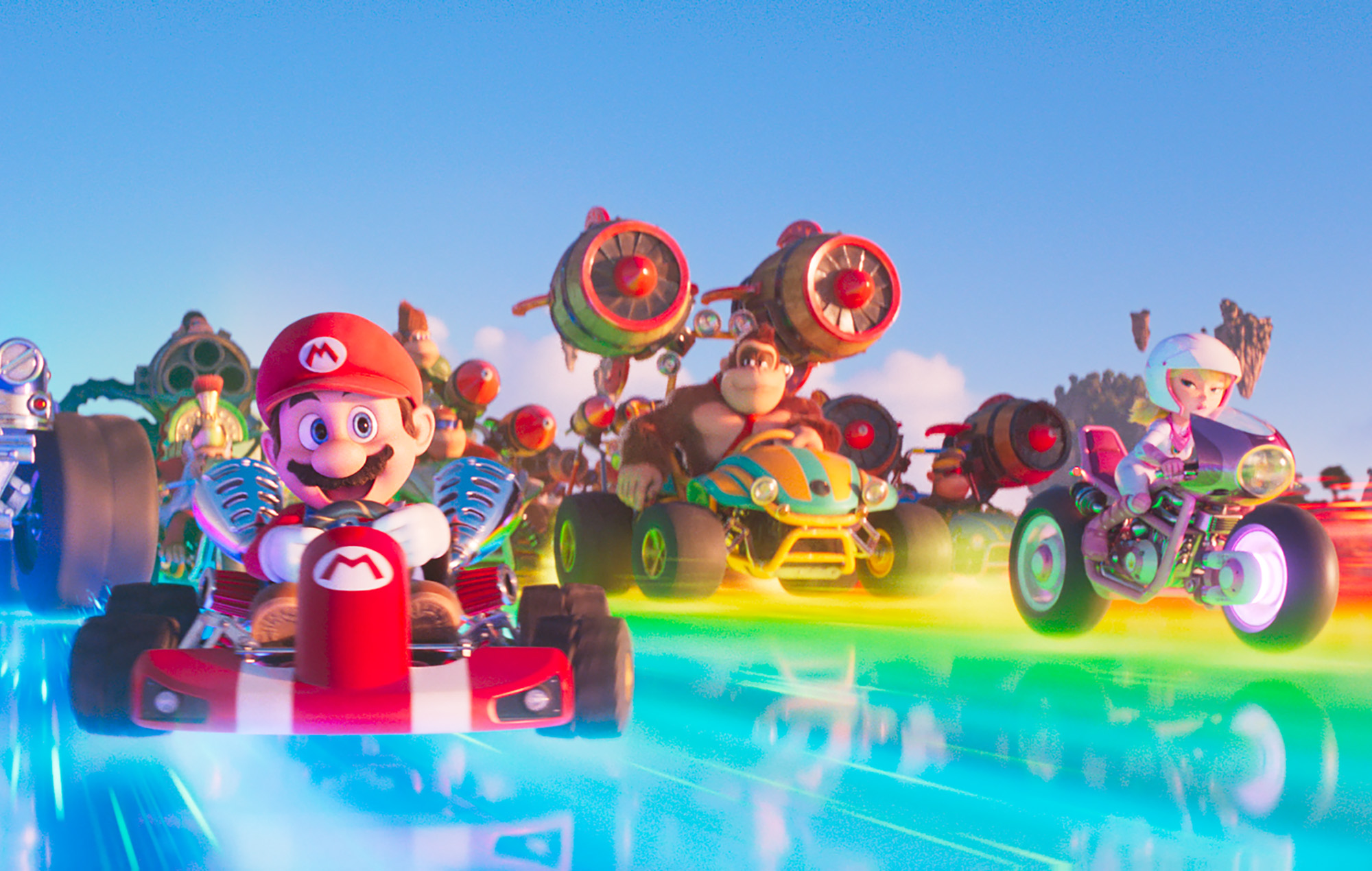
Knowing The Mushroom Kingdom inside out is one of the reasons Tyler ended up working on the movie in the first place, explains Tyler. In an interview promoting the release of Chip ‘n Dale: Rescue Rangers, Tyler spoke about how much he enjoyed working on the soundtrack because of his love of animated features and video games. Someone working on The Super Mario Bros. Movie who just so happened to be a fan of Tyler’s music read the interview and reached out.
A couple of weeks later, Tyler found himself on a Zoom call with the movie’s directors, Aaron Horvath and Michael Jelenic, as well as Mario’s creator and composer, Shigeru Miyamoto and Koji Kondo.
“Immediately I’m like, ‘Oh my God! Oh my God!’” Tyler laughs. “I lost my mind. When I grew up, I had gaming magazines and I remember pictures of Miyamoto being in so many of them. [Miyamoto and Kondo] were like superstars, and they knew this was really important to me so I was like, ‘I’m not gonna let you down!’”
Of course, The Super Mario Bros. Movie is just one of the many video game franchises that have been adapted for the big screen in recent years. Typically, these adaptations – whether it’s Sonic The Hedgehog, Assassin’s Creed or Resident Evil – will stray away from the original source material including the music, which means many of the iconic themes that fans would associate with the video games are often left behind.
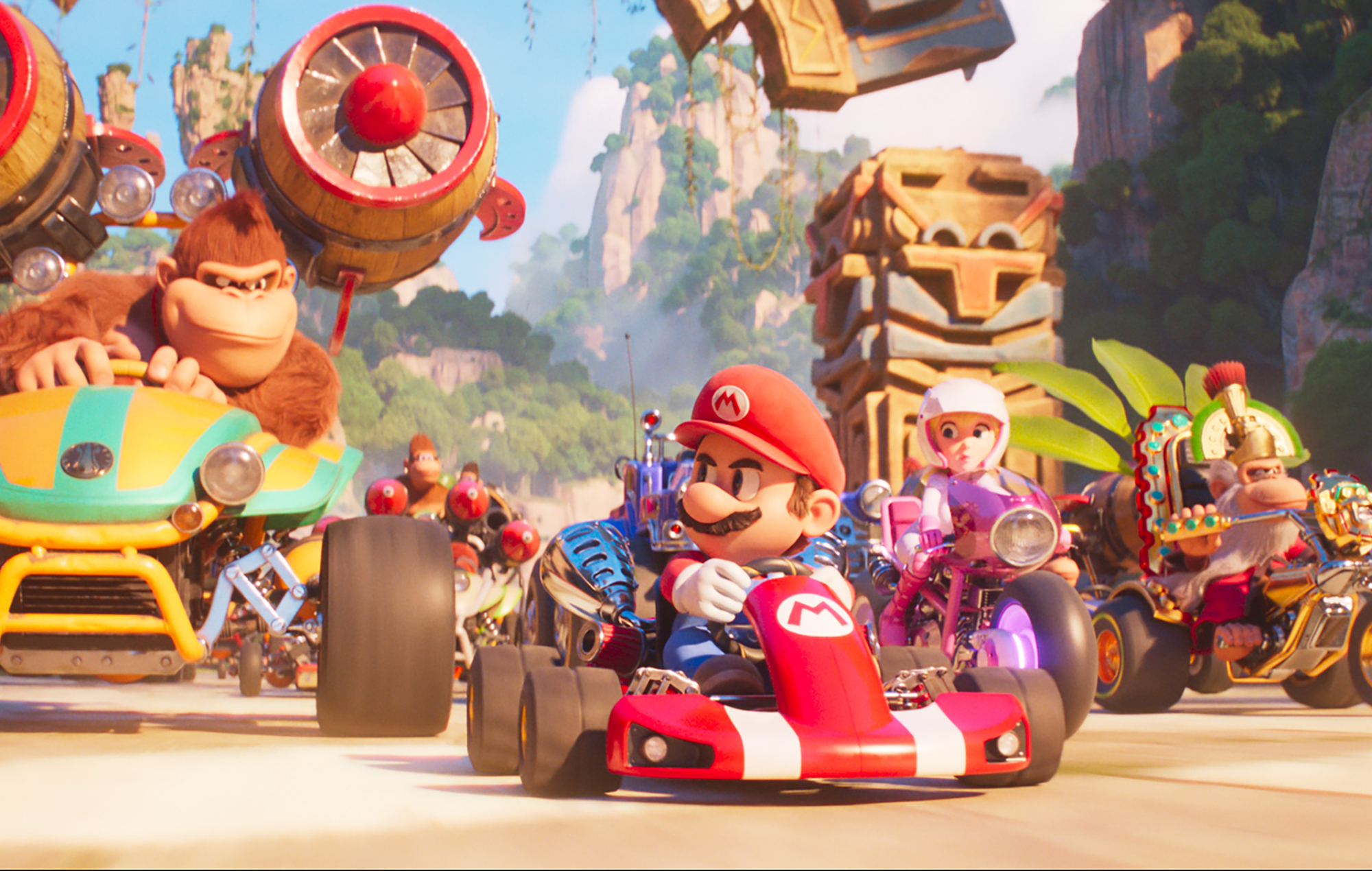
Instead, Tyler wanted his score for The Super Mario Bros. Movie to “really respect and emotionally connect with the actual games.” Working alongside Kondo, Tyler channeled his inner childhood to earmark 136 different spots in the film that could incorporate specific Nintendo melodies spanning retro games such as the original Super Mario Bros. and Super Mario World to modern-day favourites such as Mario Kart 8 and Super Mario 3D World + Bowser’s Fury.
“I remember that number very well,” Tyler explains. “When [Kondo] was talking to me about references, it was pretty wild, because I’d done so much more work than anyone could have imagined. There were so many moments where we thought the same thing, and then we both had a bunch of places that one of us hadn’t thought about. He was really gracious about everything.”
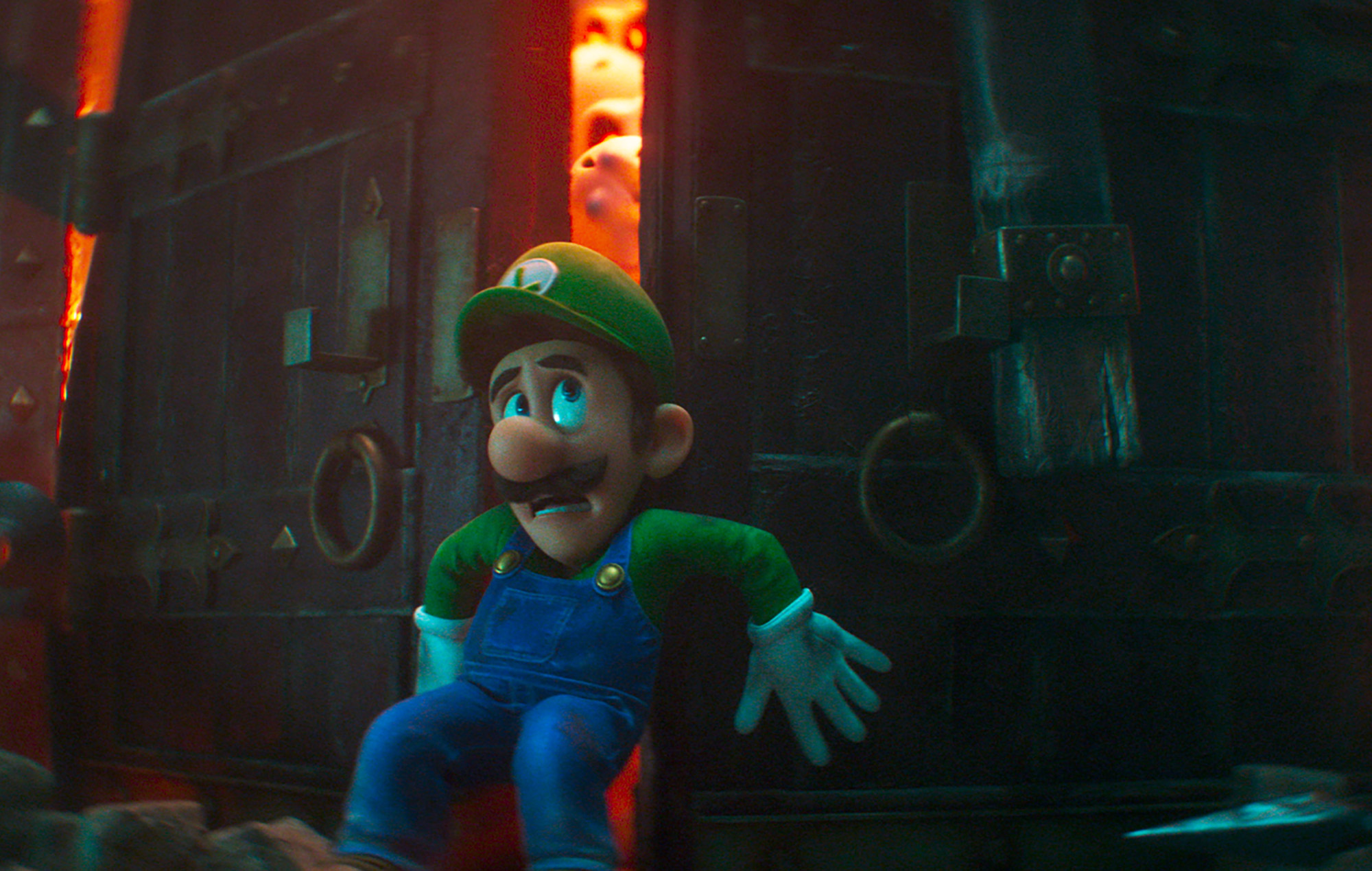
Tyler’s keen to point out that this mountain of musical easter eggs isn’t about fan service and keeping fans happy for the sake of it. Rather, it’s about knowing which melodies from Nintendo’s musical timeline can be deployed to best convey the specific emotions of scenes.
Take Grant Kirkhope’s ‘DK Rap’ from Donkey Kong 64, a hilariously over-the-top tune that’s used to introduce Seth Rogen’s Donkey Kong. When Mario and Luigi get their first plumbing job at a posh mansion, a jazzy and laid-back version of the ‘Overworld theme’ from Super Mario Bros. 3 acts as a juxtaposition to the chaos that unfolds. By contrast, Luigi’s terror upon accidentally arriving in the Dark Land is underscored by the Luigi’s Mansion theme and Haunted House from Super Mario World, while an epic Mario Kart race-off starts with lead characters choosing their vehicles as Mario Kart 8’s menu music plays in the background.
“I wasn’t even thinking of it as Easter eggs,” Tyler says. “To me, they’re references that made sense at that time in those moments of the movie because I’ve played these games so much that it just felt natural to me. And that’s why it would be impossible to have someone scoring this movie that didn’t have Nintendo music in their DNA, because there’s just so much [to reference]!”
“It would be impossible to have someone scoring this movie that didn’t have Nintendo music in their DNA, because there’s just so much [to reference]!”
That’s not to say Tyler’s score is comprised entirely of remixes and arrangements of music from Mario games. In fact, the vast majority of the score is original music composed by Tyler, who had to ensure his music emotionally connected with fans of the Mario games while being able to convey the emotional scale of a film score.
“There’s a complexity of certain melodies that convey things in the movie that are really specific and wouldn’t be covered by the themes in the games,” Tyler explains. “So it needed some glue and main motifs throughout to show the adventure of things, the sad moments, the romantic moments.”
Tyler spent a lot of time exploring how he could make the music work emotionally for the narrative while also nodding to the characters, and he figured out a special way of doing it: keeping the theme and melody the same but changing the structure of chords to suit a specific emotion. Tyler points to Princess Peach’s theme as an example of this, a character with “a beautifully triumphant” melody but one which can be easily switched up to become darker or happier if needed.
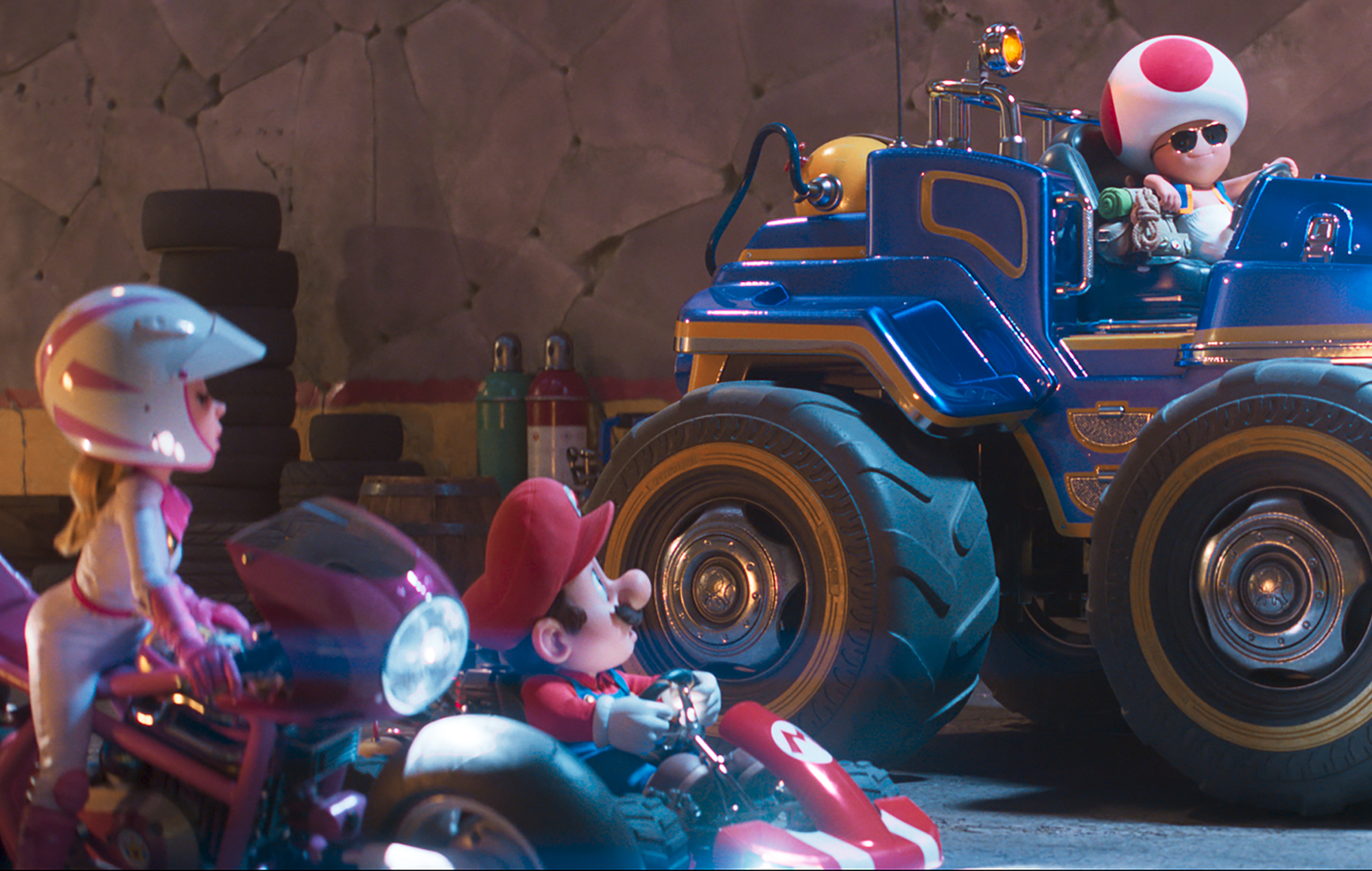
Similarly, Tyler would utilize Kondo’s fun and electric writing style in his original compositions for the score, so that his music and the Mario themes would become one thing. “The new music had to feel built into the nostalgia, like ‘I recognize that as Mario,’ even though you’ve only heard it for four seconds. In the end, everything found its home and became one score,” Tyler explains.
One of the reasons Tyler was so passionate about staying true to Kondo’s original music and writing style in his score for The Super Mario Bros. Movie is because of the strong emotional attachment he has to video game music over his decades of playing video games.
When he hears music from Mario Kart 64, Metal Gear Solid or Gran Turismo, Tyler is instantly transported back to when he would spend all night playing these games with his friends. Some of his fondest gaming memories include the hours spent recreating maps from Marathon in Unreal Tournament, and just sitting there listening to the Halo soundtrack from start to finish with one of his best friends after a particularly heavy night at Coachella.
“It shows you how this stuff is permanently in your brain along with all these experiences,” Tyler says. “For me, especially as a musician and a composer, it’s stored in a very important place.
“It was like I was downloading into my musical brain and soul all of the work these people did ahead of me. It’s like I’m standing on the shoulders of giants and that’s influenced me just as much as anything else in my life.”
Mat Ombler is a freelance journalist and regular contributor to NME.
The post Brian Tyler’s score for the ‘Super Mario Bros.’ movie is a love letter to Koji Kondo appeared first on NME.
